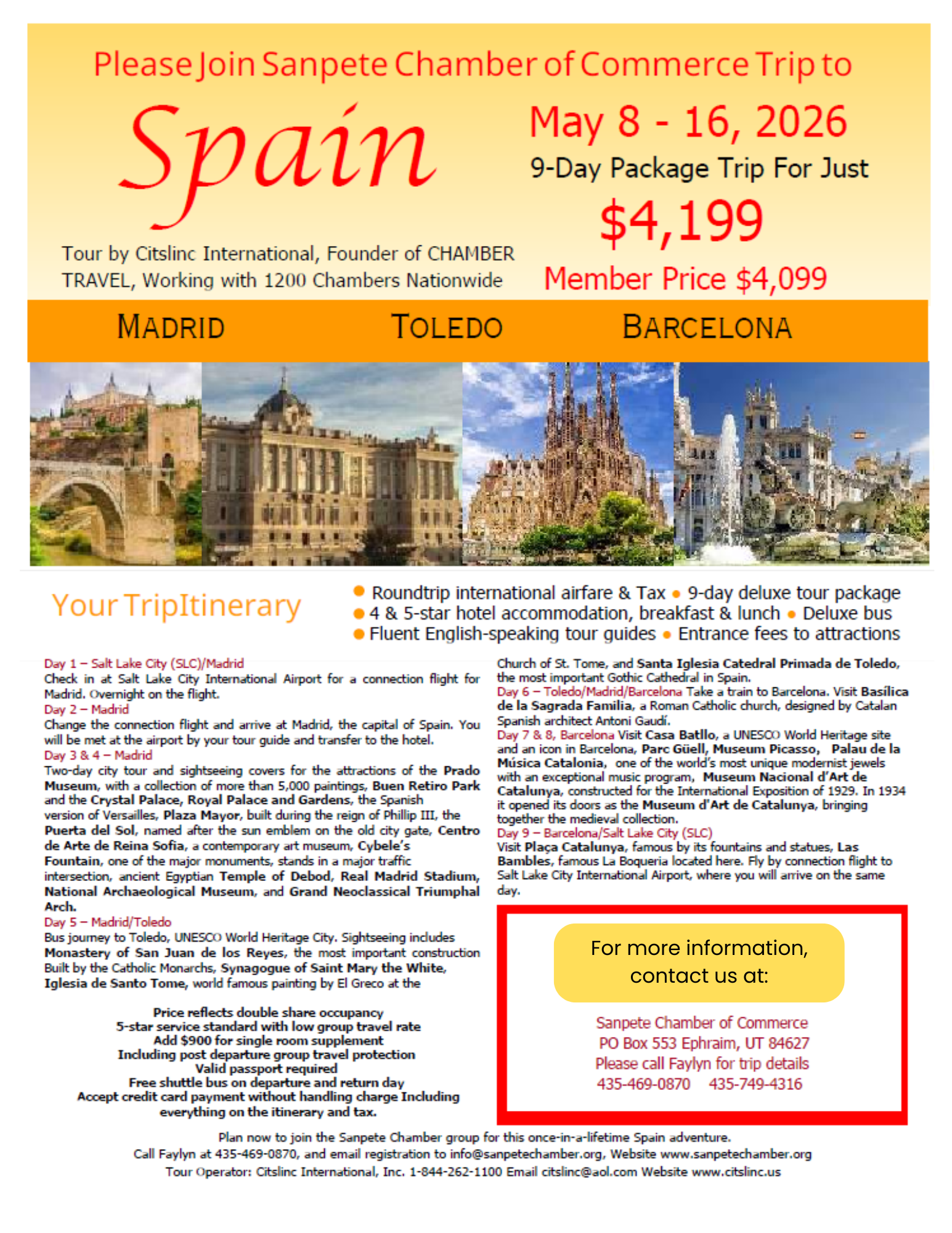Spain
Spain
9-Day Package Trip
May 8-26, 2026
Submit your information below and we will send you more information about this package and how your can proceed with the registration
Spain Registration
What you should know when you travel to SPAIN
The terrain of Portugal is high in the north and low in the south, with mountains and hills widely distributed. The northern part is the Meseta plateau; the central part is mountainous, with an average altitude of 800 to 1000 meters; the southern part (Algarve and Alentejo) is mainly hilly, and the western part is mainly coastal plain.
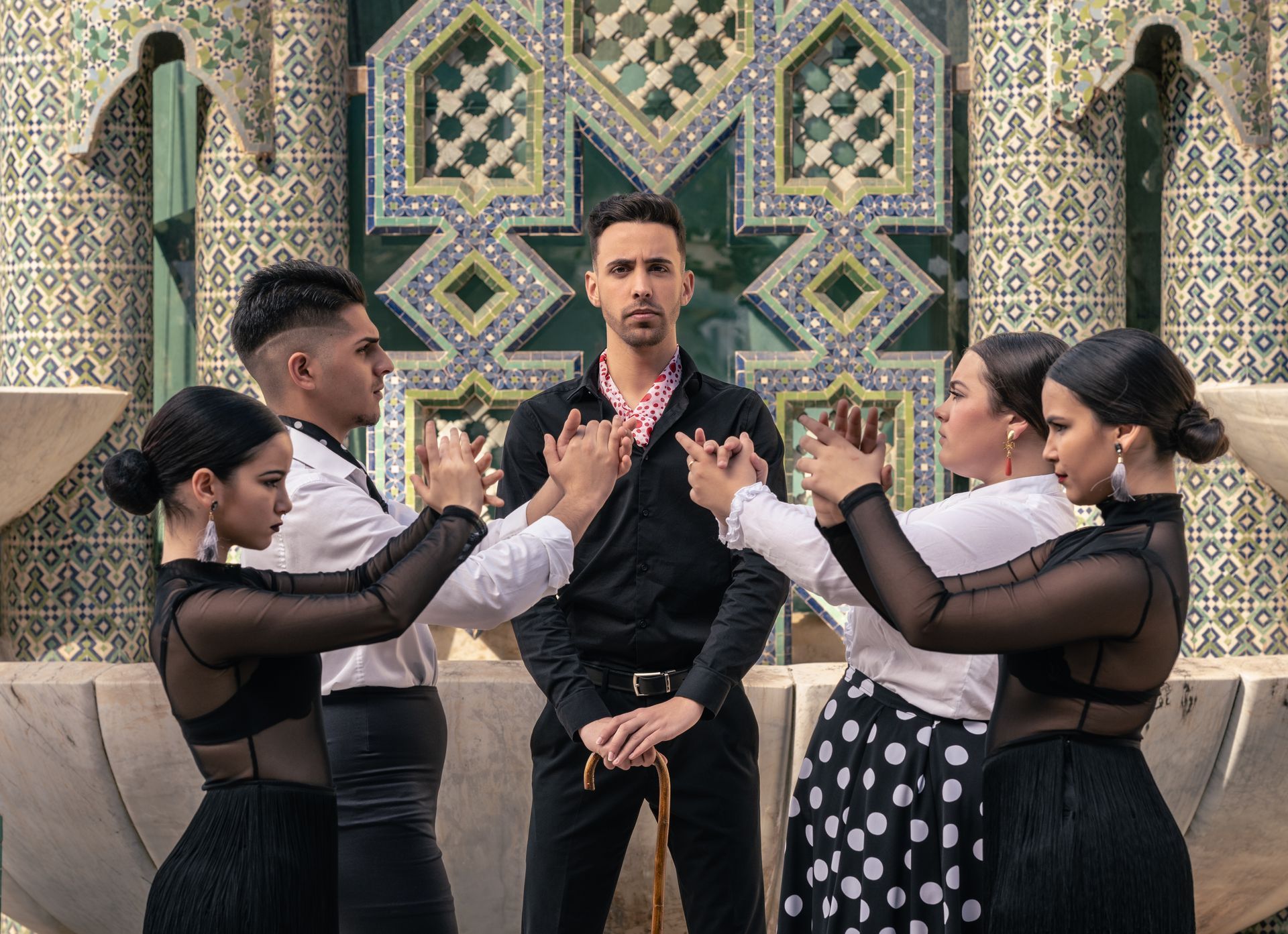
Culture
1. Every New Year's Eve, the Spaniards will pray for happiness in a special way. When the clock strikes midnight, eat a grape every time the clock strikes, and eat 12 grapes smoothly to wish yourself all the best in the new year. During the holidays, the Spaniards are used to holding a gold coin in their hands, thinking that they are blessed, and those who do not have gold coins will take a copper coin instead.
2. The fan is an important medium for Spanish women to express their thoughts and feelings. They use the fan to make various movements to express what they are inconvenient to say. For example, when a woman opens a fan and covers the lower part of her face, it means: I love you, do you like me? If it is opened and closed for a while, it means: I miss you very much. Therefore, women who are new to Spain, if they do not understand fan language, it is best not to use fans.
3. Spanish people are clearly ambivalent about their country. They both love their country very much, are proud of it, and criticize it very vehemently. They are very fond of expressing their opinions about their country in informal discussions, and should not go into deep discussions when outsiders join.
4. When the Spaniards meet for the first time, they usually shake hands and kiss, that is, hold hands first, and then stick their left and right cheeks together. When meeting acquaintances, they often hug and pat their shoulders tightly.
5. 92.2% of people in Spain believe in Roman Catholicism, and the rest believe in Protestantism and Judaism. When interacting with Spaniards, respect their religion. Do not inquire about other people's religious beliefs.
6. Spaniards regard family issues and personal work issues as private secrets. When talking with Spaniards, it is best to avoid such topics. Bullfighting is a traditional activity in Spain. They admire bullfighters. It is best for outsiders not to spoil their fun or speak ill of bullfighting. Spaniards taboo "13" and "Friday" the most. They think these numbers and dates are very unlucky, and if they happen, there will be bad luck or disaster.
Weather
The southeast and northwest of Spain are facing the sea, the Pyrenees in the northwest block the cold air from the north, and the inland areas are criss-crossed by mountains, so the climate of Spain varies from place to place.
The capital Madrid and its surrounding areas are hot and dry in summer and cold in winter, with large temperature differences between day and night and four seasons. Spring and autumn are the mildest seasons, especially autumn, which is warm and comfortable with long days, which is the most suitable for sightseeing.
Barcelona is located in the coastal area of northern Spain, with warmer winters than inland areas; summer is sunny, and the beautiful beaches of the Mediterranean Sea and surrounding islands are popular with tourists, so Barcelona welcomes an endless stream of tourists all year round.
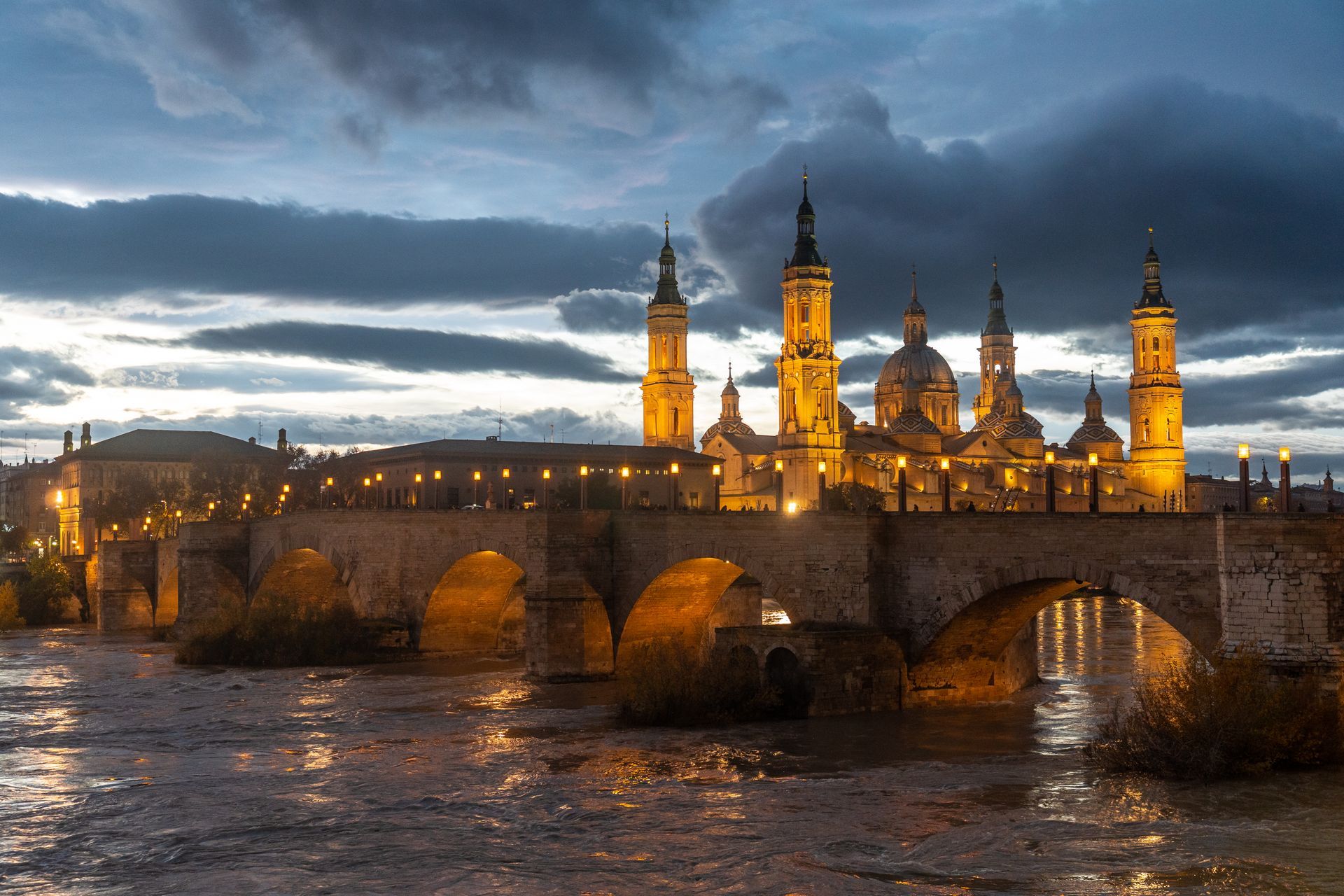
In the Andalusia region in the south, the climate is extremely hot and sunny in summer; the climate in spring and autumn is more pleasant; although the temperature is not low in winter, it also snows in the alpine areas, so you can also enjoy skiing here in winter!The Portuguese diet is quite diverse. The Portuguese like to eat seafood. There is a special dish of dried cod called Bacalhau. There are hundreds of recipes. Grilled sardines are also very popular. Caldeirada, also a Portuguese seafood dish, is a seafood soup with fresh fish and potatoes. The rest of the Portuguese meat dishes include beef, pork, lamb and chicken, examples are Portuguese stew, feijoada, brazilian, Portuguese pork piglet and Alentejo pork stew with clams. Northern Portugal also has special dishes, such as Arroz de sarrabulho and Arroz de cabidela. Portuguese wine has been exported since Roman times. The Romans associated their god of wine, Bacchus, with Portugal. Today the country is still famous among wine lovers and its wines have won many international awards.
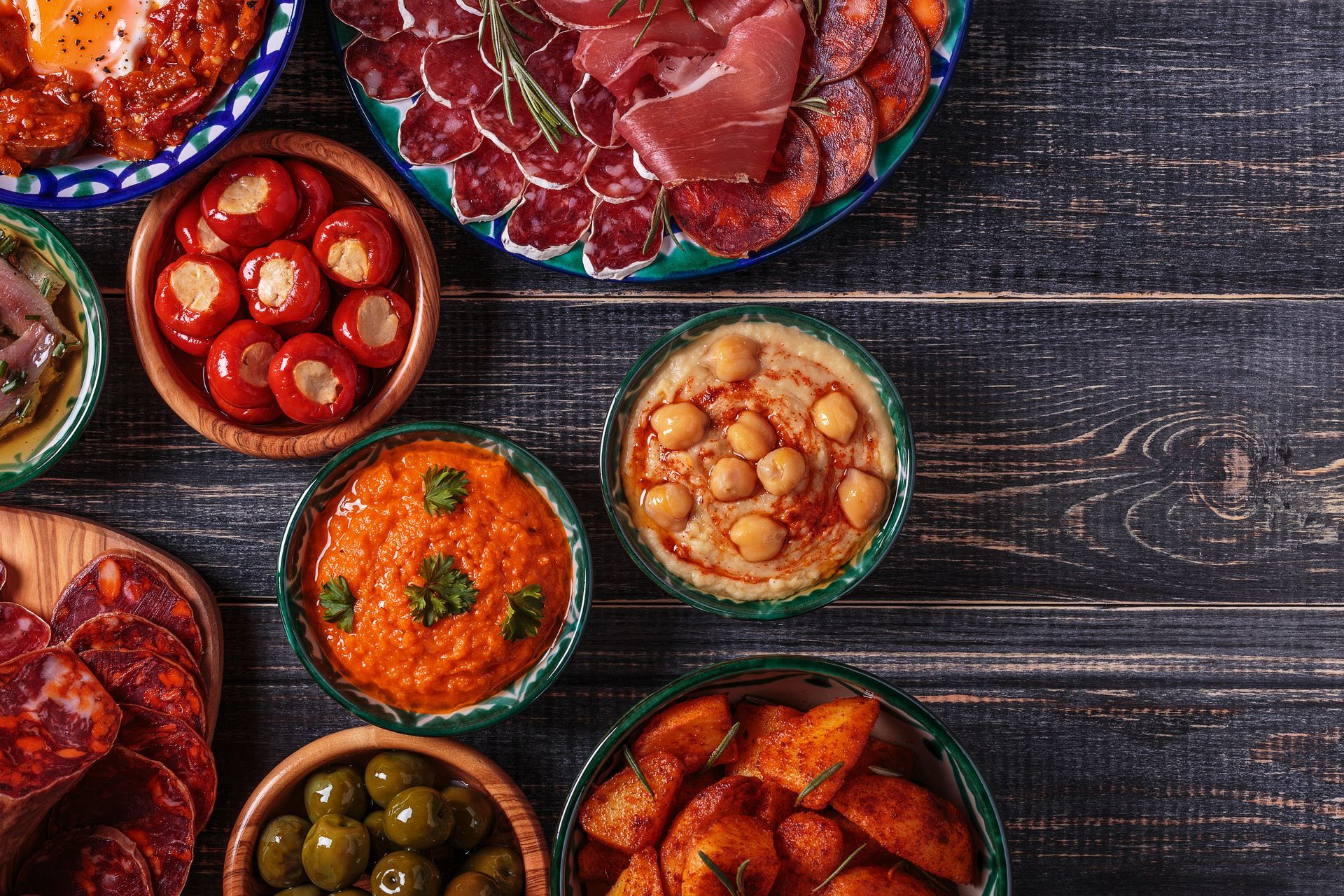
Cuisine
Spanish cuisine has a unique flavor, which combines the essence of Mediterranean and oriental cooking. You can identify Spanish cuisine by the rich olive oil flavor and fragrant garlic flavor in these dishes. The most representative Spanish name "Pile" reflects this characteristic: fry fish, shellfish, and vegetables with olive oil, and then cook them with rice.
In Spain, lunch is the main meal of the day. Spaniards have a long lunch break, and people usually go home for lunch. The protagonists on the Spanish table include cod, shrimp, oysters, etc., in addition to ham, snails, chicken, duck, and steak. Some nutritious vegetables, fruits, and whole grains are also an important part of the Spanish diet; of course, there are all kinds of delicate and delicious desserts. When you go there, you must resist the temptation.
Tourism
Barcelona is a port city in Catalonia, a world-renowned Mediterranean tourist destination, a world-famous historical and cultural city, and the most important trade, industrial and financial base in Spain. The Port of Barcelona is the largest port and the largest container distribution terminal on the Mediterranean coast, as well as the largest comprehensive port in Spain. Barcelona has a pleasant climate, beautiful scenery, and many historic sites. It is known as the "Pearl of the Iberian Peninsula" and is the most famous tourist attraction in Spain.
Bullfighting is an ancient tradition unique to Spain. The season for bullfighting is from March to October, because the sun must shine during the bullfighting. During the bullfighting season, there are two bullfights every Thursday and Sunday. If there are festivals and national celebrations, you can watch them every day. The bullfighting scene is spectacular, the fighting is thrilling and full of strong stimulation. For thousands of years, this battle of man and cow has attracted people from all over the world and is the most important item of modern Spanish tourism.
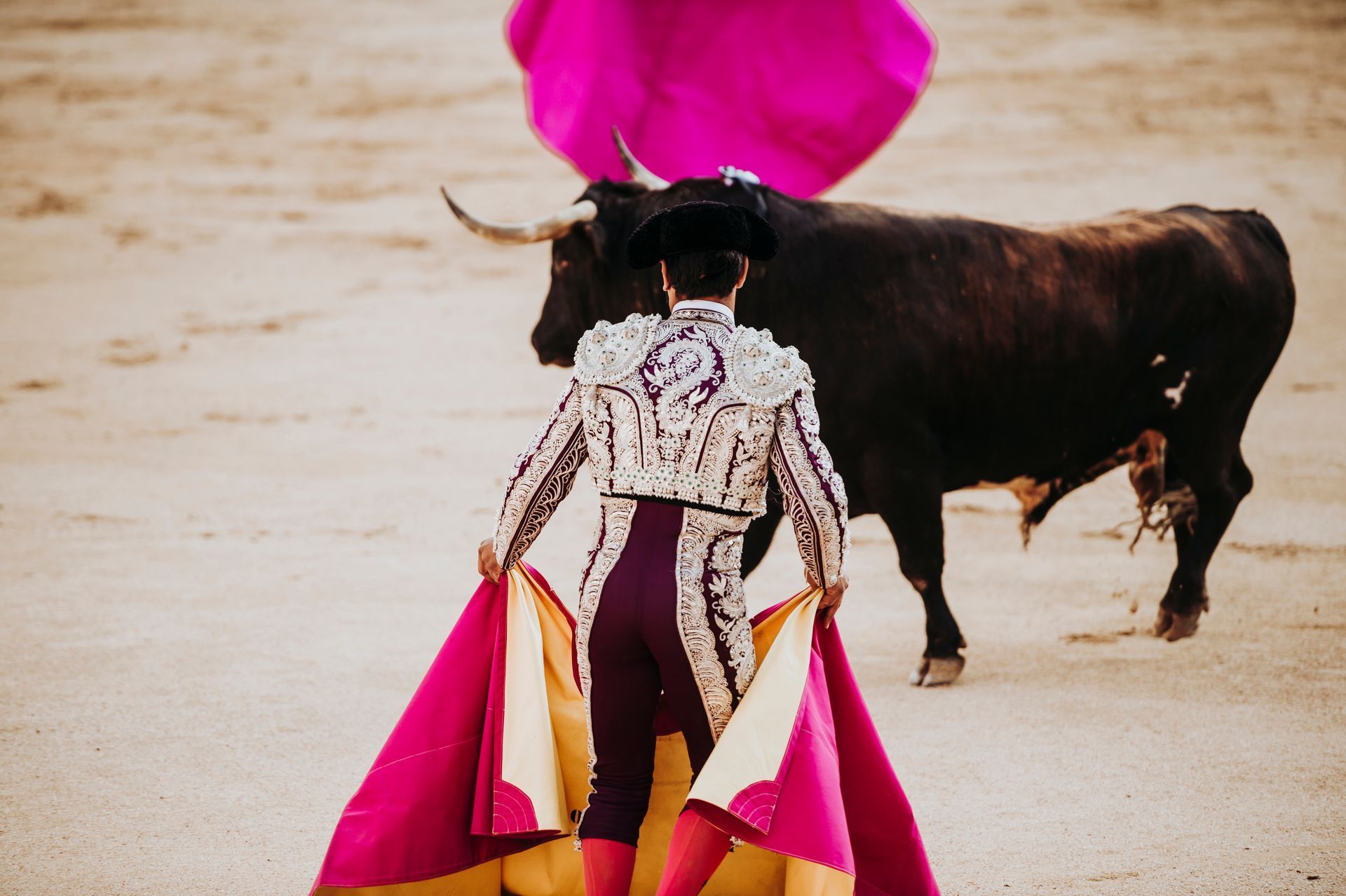
Flamenco folk songs, also known as "Cante Hondo", are Andalusian folk music. Influenced by Arabic and Gypsy music, the tune has an oriental charm and is quite interesting. The whole piece is dominated by dissonant sounds, with frequent key changes, which often make the first listener feel obscure. But the locals can deeply appreciate the sincere emotion. In Andalusia, people feel that flamenco is the most intimate, understandable music that strongly pulls their heartstrings.

